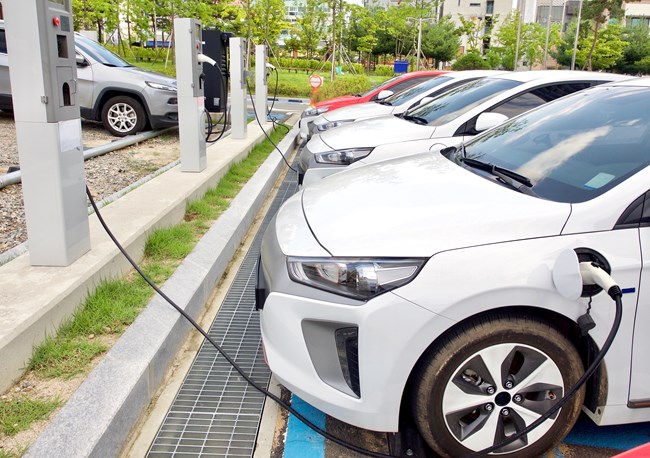We use cookies to ensure that we give you the best experience on our website. If you continue without changing your settings, we will assume that you are happy to receive all cookies on the Business Car website. However, if you would like to, you can change your cookies at any time

The start point for the best source of fleet information |
Keep up EV demand to fuel charging infrastructure growth, report urges
Date: 23 January 2023 | Author: Sean Keywood

Demand for new EVs must be maintained in order to drive corresponding growth in charging infrastructure, according to a new report.
'On the Road to 2030', published by transport research organisation New Automotive, states that as things stand, the UK is on track to meet the government's target of 300,000 public chargers by 2030.
However, it argues that drivers of EV demand, such as the planned ZEV mandate, are key to ensuring this remains the case.
The ZEV mandate would see manufacturers legally required to meet targets for a proportion of their sales being zero-emission models, which would be increased annually.
As well as implementing this promptly, the report argues that the UK must avoid a "chicken-and-egg scenario" of slowing the uptake of EVs in order to wait for charging infrastructure provision to catch up.
The report, which is based on a survey of charging infrastructure operators, installers, and manufacturers, as well as analysis of public charging data, states: "The infrastructure industry is largely being driven by the private sector and in order to continue to secure funding to carry on improving, the supply of vehicles must also continue to grow.
"This will ensure utilisation figures are high enough to enable growth in the public network, as well as ensuring there is adequate demand for home chargers."
Other issues examined by the report include how changes to regulation around installing and operating chargers disrupted some charging infrastructure operators' plans in the short term - although it adds that this should cease to be a problem in 2023.
The report also argues that a key barrier to installing infrastructure has been the cost of upgrading local electricity connections to accommodate higher usage, with a recent decision by Ofgem to reform charges for electrical grid connections hoped to mitigate this.
In addition, the difficulty in securing permission to lay new electrical cabling across land is said to be a concern, with the report urging the government to proceed with work on reforming access rights this year.
Commenting with the release of the report, New Automotive research and policy officer Clara Cook said: "Before they make the switch to an electric car, motorists need the confidence that they will be able to charge their cars when and where they need to.
"There have been a lot of concerns recently about the UK's electric car charging infrastructure. This report represents the most comprehensive examination thus far carried out on the UK's fledgling charging infrastructure industry.
"The findings are reassuring, especially given recent concerns around the rate of network growth.
"The network is not perfect - it is still a work in progress, and there are definitely still teething problems with both the existing infrastructure and the rollout of new infrastructure. However, the rollout is progressing at an adequate pace, growing by a third every 12 months, and the UK is on track to meet the government's target of 300,000 public chargers by 2030."











